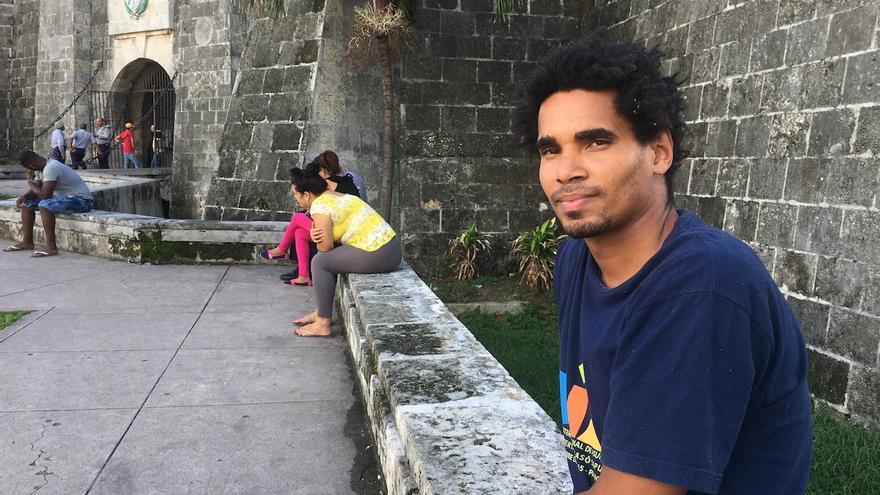
![]() 14ymedio, Madrid, 6 September 2022 — The artist Luis Manuel Otero Alcántara, leader of the San Isidro Movement (MSI), is one of the winners of the Impact awards of the Prince Claus Foundation in the Netherlands, which every two years recognizes cultural professionals around the world, not only for their work but for their “positive contribution to the development of their society.”
14ymedio, Madrid, 6 September 2022 — The artist Luis Manuel Otero Alcántara, leader of the San Isidro Movement (MSI), is one of the winners of the Impact awards of the Prince Claus Foundation in the Netherlands, which every two years recognizes cultural professionals around the world, not only for their work but for their “positive contribution to the development of their society.”
The foundation reported on Tuesday, through its social networks, that along with the Cuban, the award also went to the Brazilian Ailton Krenak, the Argentine María Medrano, the Egyptian May al-Ibrashy, the Moroccan Hassan Darsi and the Senegalese Alain Gomis.
The Dutch foundation explains on its website that the beneficiaries of this award “are promising leaders in their field” and “excellent models to follow,” who “have demonstrated transformative power, constant dedication and commitment within their contexts and beyond” and who “deserve much broader recognition.”
According to the institution, these awards are presented at a ceremony at the Royal Palace in Amsterdam and, also, in the respective countries of origin of the winners, in collaboration with the Dutch Chancellery, through the embassies of the Netherlands.
It’s not the first time that the Prince Claus was awarded to personalities of Cuban dissent: in 1999 it was awarded to the magazine Vitral, by Dagoberto Valdés; in 2008, to the artist Tania Bruguera, founder of the Hannah Arendt Institute of Artivism; and in 2010, to the director of this newspaper, Yoani Sánchez.
Via Facebook, the MSI congratulated Otero Alcántara, who is serving a five-year sentence in Guanajay’s maximum security prison for the crimes of outrage to the symbols of the homeland, contempt and public disorder.
The artist was arrested on July 11, 2021, before being able to join that day’s protest in Havana, and he was tried along with others, including rapper Maykel Castillo Osorbo, for several accusations that had nothing to do with the demonstrations of that day.
The rapper said a few days ago that he is willing to exchange prison for exile, a letter with which State Security has blackmailed him, to treat an illness that hasn’t been diagnosed in prison. In the case of Alcántara, he has made it clear, at least for now, that he “will not accept exile as an option under any circumstances.”
Both activists refused to appeal their convictions last July. Osorbo then declared, through his friends, that he would no longer lend himself “to that circus,” referring to the trial to which they were subjected.
“It’s been the independent artists who in recent years have continued to give prestige to Cuban art,” the Movement declared in its publication on Tuesday. “In the midst of censorship, repression, economic precariousness and the systemic violence of the Castro leadership, the art organization has managed to impose itself, at the same time that it offers emancipatory references to citizens.”
As an example of awards that have given prestige to Cuban culture in recent years, mentions include the two Latin Grammys obtained for the song Patria y Vida — of which Osorbo is co-author and in the music video Alcántara spoke — the Egeda prize awarded to Carlos Lechuga for his film Vicenta ,and the Special Mention awarded to Sergio Fernández Borrás for his film Cuba and the Night, at the 19th International Documentary Cinema of Madrid.
Translated by Regina Anavy
____________
COLLABORATE WITH OUR WORK: The 14ymedio team is committed to practicing serious journalism that reflects Cuba’s reality in all its depth. Thank you for joining us on this long journey. We invite you to continue supporting us by becoming a member of 14ymedio now. Together we can continue transforming journalism in Cuba.
